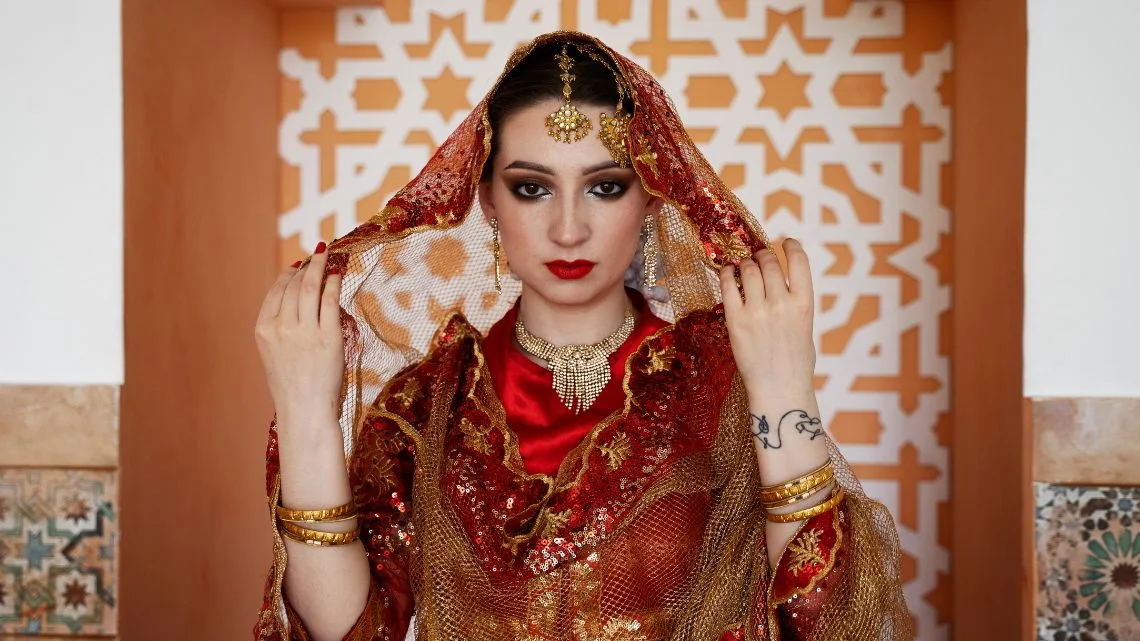
Imagine stepping into a virtual couture house, let’s call it Qasr Couture, where centuries of Gulf heritage weave through elaborately decked fabrics. And all the while, an AI voice speaks in the background, recounting tales of artisans’ past and taking people years back in time. It sounds like creative fiction, yes, like a glimpse of what luxury could look like in the metaverse. But there’s a twist: although Qasr Couture is a fictional luxury brand name for the sake of this article, this isn’t some distant dream for the people in the Gulf. Here, fashion house names are already turning such ideas into reality, blending cultural storytelling with immersive digital spaces that blur the line between myth and marketplace.
At first, it might surely be tempting to dream up a fictional couture house. And especially one steeped in heritage and led by a visionary figure to illustrate how Gulf tradition could be reimagined in the online realm. But the truth is, the Gulf doesn’t need what-if scenarios because the transformation for a metaverse leap is already here.
It’s the Stories that Sell
For instance, Majid Al Futtaim, an Emirati billionaire businessman in Dubai, unveiled the Mall of the Metaverse in Decentraland in 2023, bringing everyday experiences into a new frontier. Carrefour (multinational hypermarket retail chain), VOX Cinemas (cinema chain), and Ghawali (luxury fashion brand) each established virtual presences, inviting customers to browse, interact, and purchase in an entirely virtual marketplace.
Meanwhile, Apparel Group’s 6thStreet.com launched Space6, a “phygital” fashion experience merging Web3 and retail. Within this virtual showroom, visitors explore cinematic brand stores, interactive rooms, and collector’s items. Shopping in such an e-commerce store isn’t a transactional one, where sellers just sell and buyers simply buy. Rather, it’s an immersive experience, where Gulf luxury brands are weaving a rich narrative onto technology to attract a new generation of informed, tech-savvy users.
But the success isn’t just the advanced technology today; it’s also the narrative edge. For example, Rasasi Perfumes, recently stepped into the metaverse through a collaboration with Gamitronics’ PartyNite platform, launching RasasiWorld. The experience takes users on a virtual journey into Agarwood forests, where the origin of oud moves through interactive storytelling and digital customization.
These examples answer a marketing paradox in the Gulf: luxury is experiential, yes, but audiences still expect digital depth. So today, marketers in the Gulf move to rebrand local culture and stories replacing boring product listings for interactive digital touchpoints.
Shaping Future-Ready Brand Builders
For emerging leaders and young entrepreneurs in the Gulf, these digital storytelling strategies serve as both idea and design in the same plate. It shows that you don’t need a 3D studio; you just need to bring a solid story to the table. Like the collaborations between incubators like Sharjah Media City (Shams) and digital artists are increasing access to immersive marketing. Moreover, recent training modules show that newly graduated creative directors are now building metaverse storyboards from day one, something unheard of just two years ago.
Click, Swipe, and Immerse
Luxury in the Gulf is entering a new chapter. One where tradition meets technology at the core, creating something both futuristic and deeply cultural. Here are three ways brands are already leading the shift:
- You’re on a virtual historical walk and you find designers weaving centuries-old stories into modern clothing collections through immersive virtual reality (VR) galleries.
- A personalized consultation that unfolds entirely online, where a luxury buyer receives real-time advice and customization from a virtual interior designer stylist.
- Narrative voice companions guide you as you browse through products, sharing artisan stories, quick facts, or regional myths.
These techniques all circle back to one simple principle: Gulf brands are no longer scaling inventories alone; they’re scaling experiences.
Staying Relevant in a Pixelated World
As we see it, the Gulf has long been a turning point for both commerce and culture. In the metaverse, this dual identity becomes a strategic advantage. With deep cultural narratives, technology-forward consumers, and strong infrastructure support, Gulf brands and emerging companies are positioning themselves not only to participate in digital storytelling but to lead it from the helm.
And in a region where luxury blends traditional accents with modern touches, some of the best brands now mix technology and tale. They anchor their digital strategies in regional identity, while reaching global consumers who crave depth and a good story. This urgency refuses to budge, accelerating with the Gulf Cooperation Council’s (GCC) digitalization and the metaverse’s global expansion.
The Future of Luxury is Already Here
A fictional house like Qasr Couture might seem like a playful mental exercise, yet in truth, it’s already happening. The Gulf doesn’t just imagine heritage woven into digital couture, but rather builds it from the ground up. From Majid Al Futtaim’s Mall of the Metaverse to Apparel Group’s Space6, and even Rasasi’s immersive RasasiWorld, real-life examples show exactly how storytelling is no longer an accessory in luxury marketing; it’s the fabric itself. For markets and brands, the message is straightforward: don’t just dream about a future of timeless, sustainable luxury. In the Gulf, that future is already being lived, woven into every story, every experience, and every innovation.
